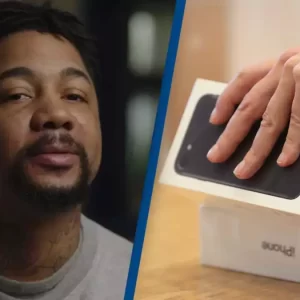The thief explained how he easily swindled Apple users out of their money and made thousands
A thief was able to rack up thousands of dollars over and over again with a scheme that starts with stealing iPhones.
Nobody likes to be a victim of theft, in fact most people simply don’t like thieves, but it makes sense to speak to criminals who steal on how to not be a victim.
Aaron Johnson is currently serving time in Minnesota Correctional Facility after being convicted of racketeering.
But in an act which will likely help victims, he has explained just how he was able to earn big money after stealing people’s Apple iPhones.
And it was a lot more complicated than just stealing the phone and selling it to any random person who would buy it.
Despite his success, Johnson’s luck eventually ran out and his year-long smartphone stealing spree resulted in a 94-month prison sentence.
It is estimated he was able to make $300,000 before he was busted. Though this figure wasn’t reached just him on his own as the Minneapolis Police Department’s arrest warrant says they got 11 members of an entire enterprise.
Speaking to the Wall Street Journal (WSJ), he explained that since he was already being punished for his crime, he might as well try and make amends by letting people know just how he was successful.
Which I suppose would be good to know if you are one of the millions of people who don’t set foot outside without your iPhone.
Breaking down how he managed to make so much, it worked eerily similar to the scenes in Will Smith’s 2015 film Focus.
He would pinpoint a victim, ideally in a dimly lit bar, and make a selection. He explained that college-age men became ideal as ‘they’re already drunk and don’t know what’s going on for real’.
He would befriend them, possibly offering drugs or tell them he was a rapper and wanted to add them on Snapchat.
They would eventually hand over their phone to Johnson, thinking he would put in his details and give it right back, but that was not the case.
“I say, ‘Hey, your phone is locked. What’s the passcode?’ They say, ‘2-3-4-5-6,’ or something. And then I just remember it,” Johnson explained.
Other times he’d simply record people typing their passcodes. If he could manage it he would then slip out with the phone in his possession or hand it to a member of his crew.
Once he was in, the game seemed to get a lot easier. He’d take rapid steps to ensure they couldn’t have access, deactivating lost phone apps, changing passcodes and changing Apple ID passwords.
